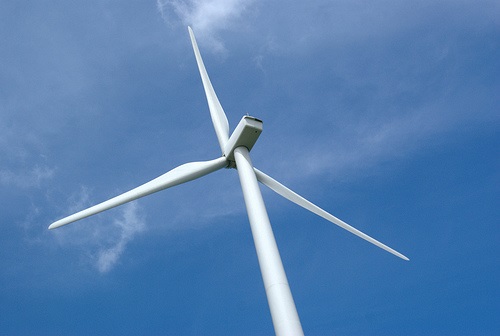
HARTFORD, CT –Following Tuesday's final passage of the first statewide industrial wind turbine regulations for Connecticut, the advocacy group FairWindCT thanked state legislators on the Regulations Review Committee, especially its co-chairs Representative Selim Noujaim and Senator Andres Ayala, Jr., Ranking Members and others who took a deliberative approach to understanding the issues and concerns voiced by stakeholders and kept the regulations process moving forward.
Addressing the concerns of stakeholders in a meaningful and transparent way is no easy task. Joyce Hemingson, President of FairWindCT says "The conversation with legislators will continue. The regulations passed today are not perfect, but do give protections that were not there when we started."
Hemingson adds "The main purpose of our laws is to be protective of public health and safety. A setback distance of 1.5 times the height of an industrial wind turbine from property lines would allow placement too close to homes. We hope that developers will choose to stay away from homes. Other states have learned the adverse effects of inadequate setbacks."
From its inception in December 2010, FairWindCT called for state-wide industrial wind regulations. On January 3, 2011 then Attorney General Richard Blumenthal added his support during a meeting and press conference with FairWindCT and other citizens' groups, stating " Renewable sources of energy such as wind should be encouraged, but we must be very careful as to how and where, so as to prevent any adverse health and safety impacts on neighborhoods or on the environment generally."
A Massachusetts judge recently ruled that two 397-feet-tall industrial wind turbines in Falmouth must be shut off from 7 p.m. to 7 a.m. Monday through Saturday and shut off all day on Sundays and three major holidays — Thanksgiving Day, Christmas Day, and New Year's Day — to protect the health of homeowners who live about a quarter-mile (1320 feet) away.
Noise control expert Stephen Ambrose, who has worked on power plant noise issues for thirty years, notes that noise from conventional power plants can be contained inside a structure or neighboring residences can be fortified against such power plant noise. Wind turbine noise is different — it cannot be contained and neighboring residences cannot be modified to protect public health from this noise. "Distance is the only solution," says Ambrose and numerous other noise control experts around the world.
Hemingson says, "Connecticut deserves good regulations on setbacks and noise. The Department of Energy and Environmental Protection recognizes that Connecticut has fewer wind resources than other states, but we still need to be protective of our citizens. We encourage our state's lawmakers to consider these ongoing issues and FairWindCT will look forward to working with the legislature, regulators and the administration in this regard."
For more information on FairWindCT, please visit www.fairwindct.com, contact us at info@fairwindct.com, or call Joyce Hemingson at 860-379-6425.